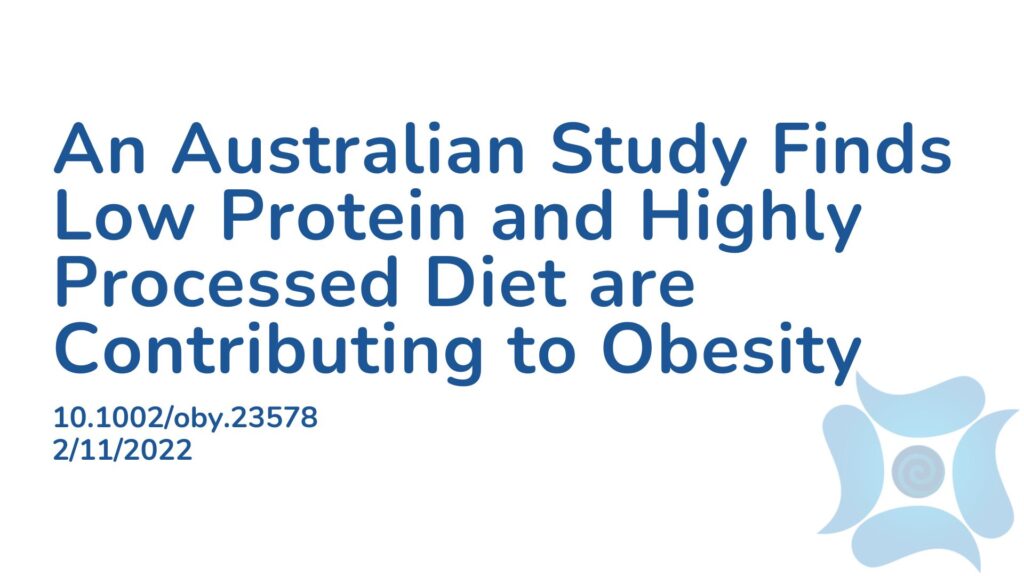Summary:
An Australian study of one year duration tracking the diet of over 9000 individuals has shown that highly processed foods that are low in protein are one of the main contributing factors to obesity, a condition which is continuing to rise in western countries. The authors of this study hypothesized that low protein intake drives the overconsumption of fat and carbohydrates, which is often consumed as highly refined and processed foods. Data from the Australian National Nutrition and Physical Activity Survey was used to determine trends and patterns. The results showed that highly processed foods are a significant replacement of protein and was associated with an increased consumption of energy.
Abstract:
Objective: The protein leverage hypothesis (PLH) postulates that strong regulation of protein intake drives energy overconsumption and obesity when human diets are diluted by fat and carbohydrates. The two predictions of the PLH are that humans (i) regulate intake to maintain protein within a narrow range and that (ii) energy intake is an inverse function of percentage energy from protein because absolute protein intake is maintained within narrow limits. Methods: Multidimensional nutritional geometry was used to test the predictions of the PLH using dietary data from the Australian National Nutrition and Physical Activity Survey. Results: Both predictions of the PLH were confirmed in a population setting: the mean protein intake was 18.4%, and energy intake decreased with increasing energy from protein (L = −0.18, p < 0.0001). It was demonstrated that highly processed discretionary foods are a significant diluent of protein and associated with increased energy but not increased protein intake. Conclusions: These results support an integrated ecological and mechanistic explanation for obesity, in which low-protein highly processed foods lead to higher energy intake because of the biological response to macronutrient imbalance driven by a dominant appetite for protein. This study supports a central role for protein in the obesity epidemic, with significant implications for global health.
Article Publication Date: 2/11/2022
DOI: 10.1002/oby.23578




